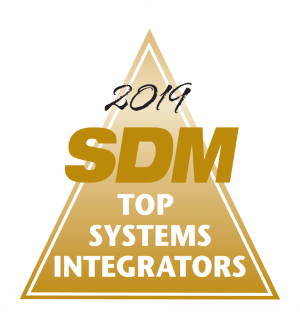When asked about their biggest challenge in the coming year, security integrators and manufacturers alike often say the same thing: attracting workers. In the access control space, an industry in transition from the “old” way of doing things to cloud, smart buildings, cyber security and more, the challenge is even greater. On the tech side, they often need to straddle two worlds — hardware and software — and finding someone versed and interested in both is tough in an era where the Googles and Apples of the world are the expectation.
“I think within the integration channel there is a split in the abilities,” says Richard Goldsobel of Continental Access, a division of Napco Security Technologies. “There are some senior people with great knowledge, but they may have lost their middle-level knowledge base. They may have some Millennials that know Windows but they don’t understand the hardware side of access control. They have never been exposed to anything like it. They may have difficulty installing or understanding how their installation affects the use of the product. When we are training them, a younger tech will say, ‘Can you just remote in and set this up for me?’ It is a really fundamental shift in the type of employee the integration channel can afford to pay. Educating them, and keeping them around long enough that the education pays off may be the biggest shift and hurdle in the industry.”
Peter Boriskin, ASSA ABLOY Americas, sees a potential crisis brewing. “Integrators, like many other industries, are facing a talent crisis. With technology constantly evolving, integrators — and our industry at large — need to find effective ways to attract the best and brightest new talent so that our industry stays on the cutting edge.”
At 3xLOGIC, backlogs in the integration channel are causing delays and frustration, says Matt Kushner, president and CEO. “We have integrator partners that are facing extended install backlogs as long as several months due to labor shortages. This will be the biggest challenge to our partners, not only because of the customer frustration from long install delays, but also because backlogs can expose the deal to competition from low-cost, less-capable, aggressive competitors.”
Security integrator Brian Gould, operations manager at LVC Companies, says fast growth has made it tough to keep up with demand. “As we continue to grow and budget for growth, one of our biggest challenges is finding qualified techs. We have a lot of great techs coming up through apprenticeships, but as we grow we need seasoned, qualified field people and they are at a premium.”
Jack Johnson of Star Asset Security echoes that sentiment. “The job market is a real challenge. How do you have a program in place to develop and recruit talent? How do we improve ourselves and build a culture where we have in-house education and a strategy to continue to recruit and grow young younger talent? That is the biggest challenge for every company of every size.”
This is an issue the security industry has been grappling with for several years. But at the recent PSA TEC conference, the topic was given some concrete suggestions from SIA CEO Don Erickson. “We are working with the Electronic Security Association and if all goes well we plan to promote the industry and develop training tools,” he told attendees at the annual State of the Security Industry Panel. “What is lacking is showing the demand. We have a pilot program with community colleges but they want to see the demand for this and the numbers.”
Erickson did offer some concrete suggestions based on his and other organization’s efforts to recruit tech-savvy workers to the security space. “I think we have to focus on non-traditional audiences. We are working with Women in Cyber Security promoting our industry. The [NSCA] Igniteyourcareer.org program is unbelievable. But this is bigger than SIA or NSCA.” He noted that focusing on more diversity in all security organizations is another good way to reach untapped talent. “We are equal opportunity employers,” he said. “We have a very diverse staff and my request of PSA is to elevate the discussion about how diversity in the security industry impacts profitability for integrators, regardless of size.”




